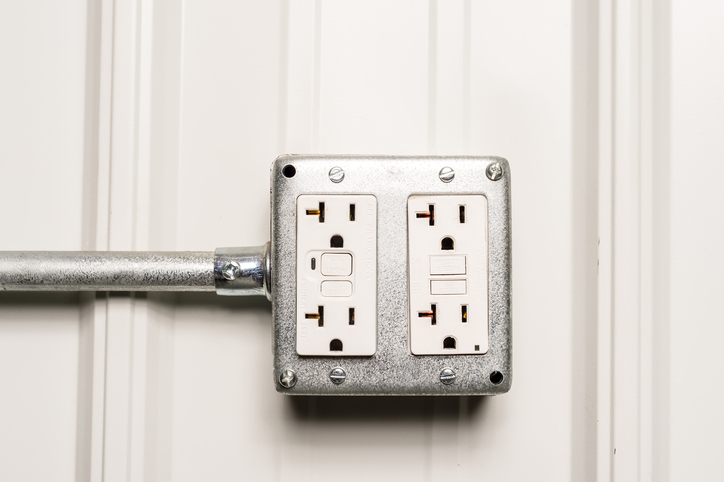If you have or are considering getting an extra refrigerator or freezer for food storage in your garage, it’s important to be aware of issues that can arise from using this appliance with a standard GFCI outlet.
What is a GFCI Outlet?
A GFCI outlet (also sometimes called a GFI outlet) is a Ground-Fault Circuit Interrupter device. This type of outlet is easily identified by the small buttons on the face of the outlet labelled “Test” and “Reset”. GFCI outlets help protect people from electric shock and electrocution. A GFCI outlet monitors the amount of electric current flowing between the “hot” side of the outlet (slot on the right) and the “neutral” side of the outlet (slot on the left). If the GFCI detects an imbalance, it trips the circuit as a safety feature. This is great for protecting people from potentially dangerous electric shock but not so great if it trips the circuit for the extra fridge/freezer in your garage. By the time you realize the circuit has been tripped and power shut off to your appliance, your stored food could be defrosted or even spoiled completely.
What Should a Garage Fridge/Freezer Plug Into?
In most homes built within the last few years, you will find only GFCI outlets in your garage and wonder how and where to plug in your garage-located fridge/freezer unit. The best solution is to have an electrician install a dedicated circuit with a standard outlet. This will protect your primary electrical system by using a dedicated circuit and provide a more reliable standard outlet to power your appliance. This solution ensures safe operation of the appliance without the worry of a GFCI tripping and resulting in a fridge or freezer filled with spoiled food.
If you’re forced to use a GFCI outlet for the freezer or fridge in your garage, we recommend purchasing a GFCI trip alarm. GFCI trip alarms are fairly inexpensive and you can find a number of options available between $15 to $30. Some very new models also incorporate smart features that can sync with your smart home hub to send you a notification when the trip alarm goes off, so you know there is a problem even if you’re away from home and not present to hear the alarm. Depending on the smart home hub system you have, this can increase the cost of the GFCI trip alarm because of the added features.
Have questions? Call Bridgewater Home Watch for answers to your GFCI and electrical system questions at 843.903.HOME (4663).






